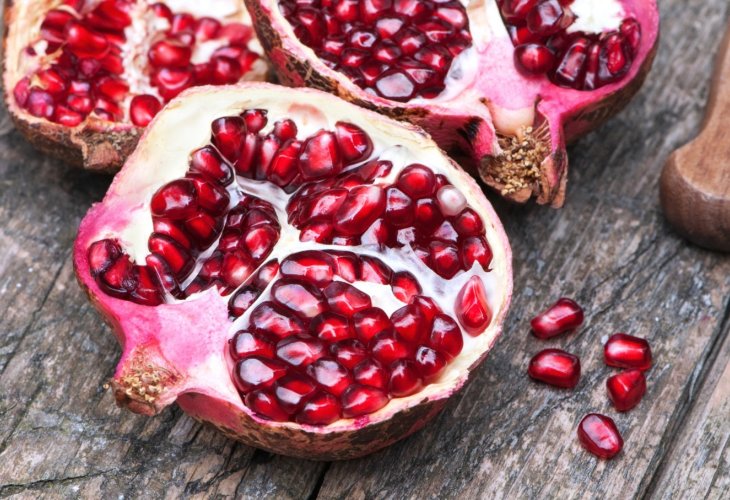Can the Pomegranate Help Us Stay Forever Young?
A new study suggests that a substance derived from pomegranates could reverse aging processes and rejuvenate cells.
 (Photo: shutterstock)
(Photo: shutterstock)A group of researchers from EPFL University in Lausanne, Switzerland, believes it has found the fountain of youth in an unexpected source: the ruby seeds of the pomegranate.
As we age, our cells struggle to recycle their 'power stations.' These power stations, the mitochondria in each cell, can no longer perform their functions adequately and therefore accumulate within the cell. Their declining functionality impacts the health of various tissues, including muscles, which weaken as we age. Additionally, the accumulation of dysfunctional mitochondria is suspected to play a role in causing age-related diseases like Parkinson's.
This is where the pomegranate comes into play. Scientists have identified a molecule capable of independently restoring a cell's capability to recycle defective mitochondrial components: a molecule known as Urolithin A. "This is the only molecule we know that can restart the cleaning process of mitochondria. It is entirely natural, and its impact is effective and measurable," says Patrick Aebischer, a leading figure in the research.
The researchers began their study by examining nematodes, worms considered elderly by 8-10 days old. Exposure to the Urolithin A molecule extended their lives by more than 45% compared to the control group. Next, the benefits were tested on creatures closer to humans: mice. Again, the molecule successfully rejuvenated the mitochondria, and older mice—two years old—demonstrated 42% better physical performance than mice in the control group.
Before rushing out to buy pomegranates, it's essential to note that the pomegranate itself does not contain the magic molecule, only the precursor for its production. When we eat a pomegranate, some components are processed into Urolithin A by the friendly bacteria in our gut. Therefore, the benefits each species—and each person—will gain from pomegranates vary greatly: it all depends on the type and quantity of gut bacteria they have. Some humans lack the bacteria capable of producing Urolithin A from pomegranates. This is why the Swiss scientists hope to develop a Urolithin A product that anyone can take directly and benefit from, regardless of their gut bacteria situation.

